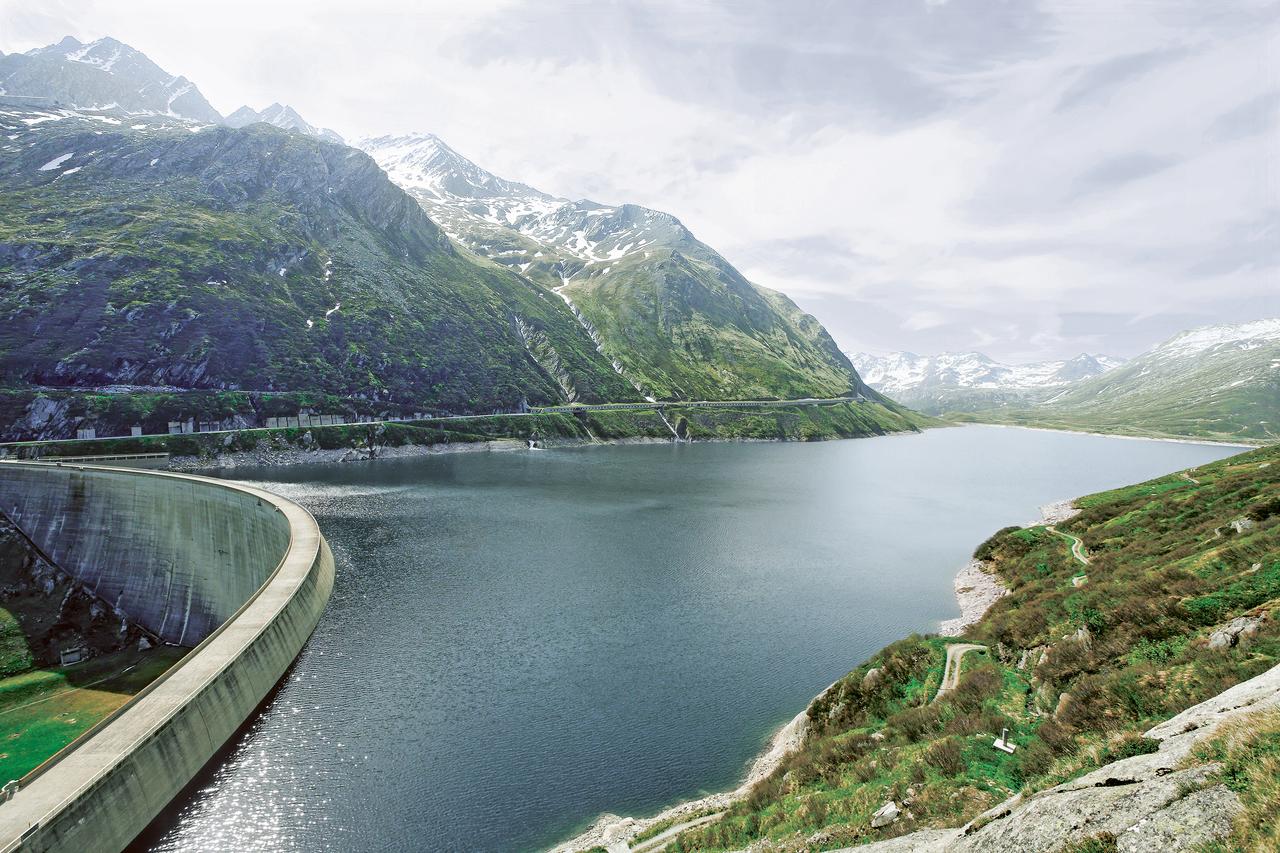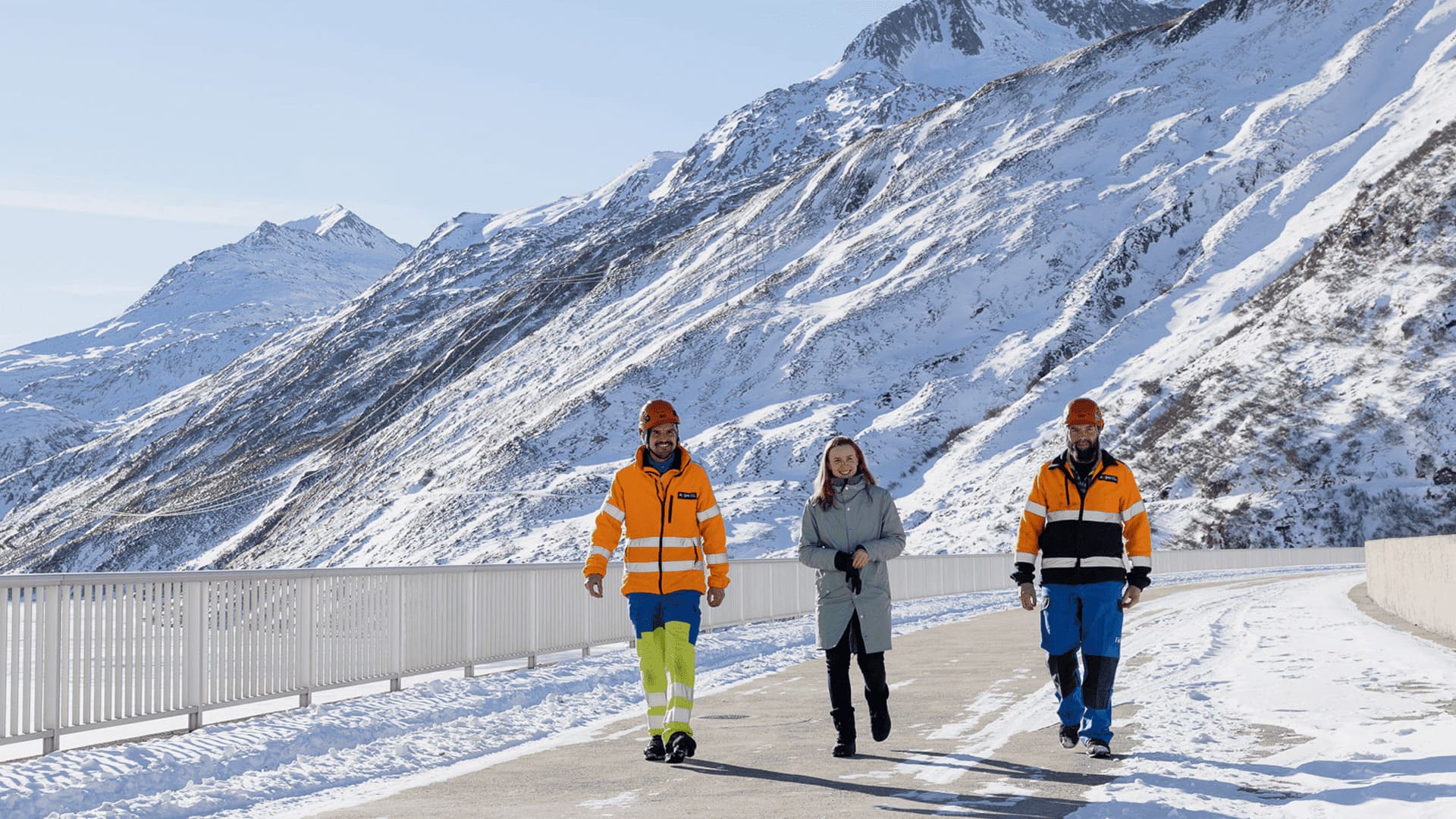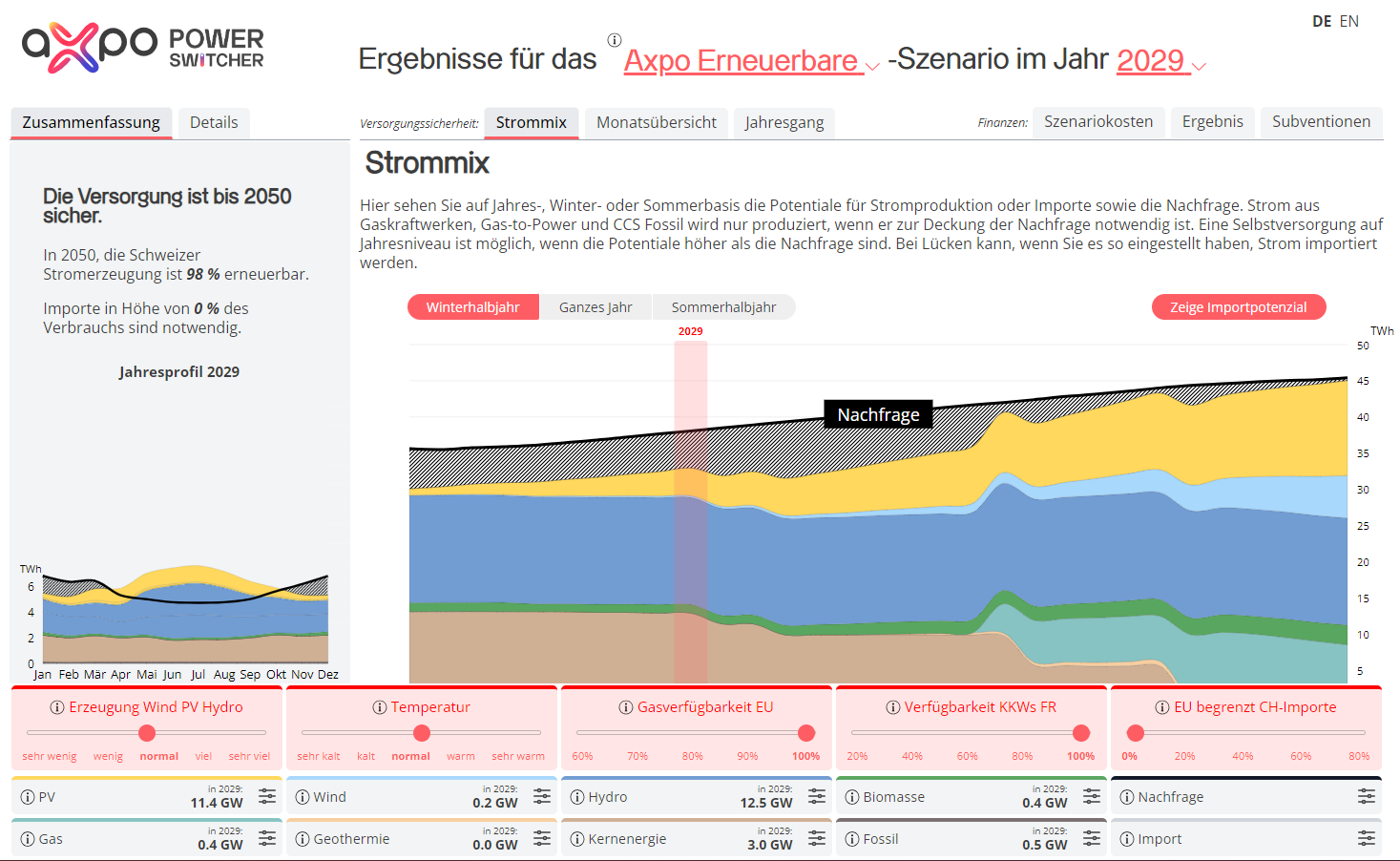10.07.2023 | Pilot project for the fish
Cool groundwater in the Aare
If the Aare River becomes particularly warm during prolonged hot spells, the Beznau nuclear power plant (KKB) is required to reduce its output in order to minimize additional heating caused by cooling water discharge. This is because water that is too warm causes stress among the fish. In a pilot test, Axpo is currently testing whether cold refuges for fish could be created in the Aare.
For the employees of the Beznau nuclear power plant, it has long been routine; for the media, it is a welcome summer story year after year: if the temperature of the Aare water rises to 25 degrees, the two units of KKB reduce their output so that the temperature of the Aare does not exceed 25 degrees for as long as possible. If it does for three consecutive days, and the weather forecast does not predict any cooling for another two days, the KKB has to be shut down until the temperatures drop again - this is how the Swiss Federal Office of Energy stipulates.
So KKB is making the mid-summer power reductions not for safety reasons - the plant could operate at much higher water temperatures - but for water protection. "High water temperatures can trigger stress in aquatic life," says Axpo environmental engineer Nadia Semadeni.
Cool groundwater pushes into the Aare River
Now Axpo has launched a pilot project to provide cool retreats for the fish even when the water is particularly warm. "We know that there are so-called groundwater upwellings below the hydroelectric power plant, which, like KKB, is located on Beznau Island," explains Nadia Semadeni. "The cool groundwater here pushes into the Aare from below and is then carried along by the river." However, these groundwater upwellings are small because the river bottom is solidified. The goal of Axpo's pilot test is to loosen this consolidation so that more cool groundwater naturally enters the Aare. Excavations in the Aare are intended to create cooler groundwater pits locally in these areas. The project was carried out in consultation with the cantonal authorities.
During the summer, tests will now be carried out to see whether the groundwater actually reaches the Aare in the necessary quantities, whether cooler zones are thus created and whether the fish retreat to the cooler groundwater pits during the hot days. "This is a pilot project," emphasizes environmental engineer Nadia Semadeni. "That means we don't currently know how successful the measure will be."
No impact on groundwater
Incidentally, the Axpo pilot project has only a very limited impact on the groundwater levels. "Since the inflowing water volumes are very small compared to the groundwater body, the impact is practically negligible," says Nadia Semadeni. "Nevertheless, we will observe how the groundwater level behaves during the project." Any success of the pilot project will also not change the operation of the nuclear power plant. KKB will continue to comply with the specifications for high water temperatures.




.jpg)





